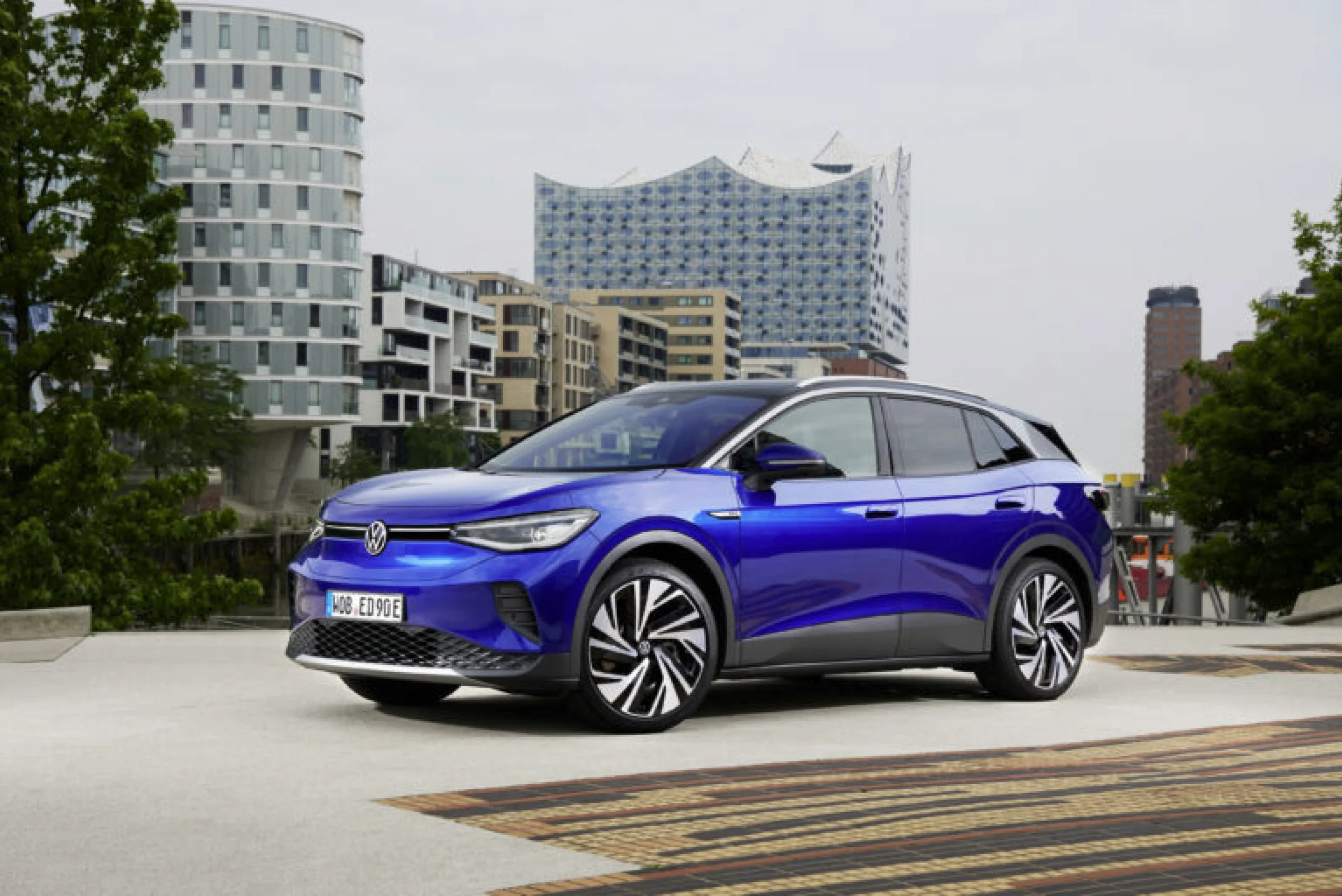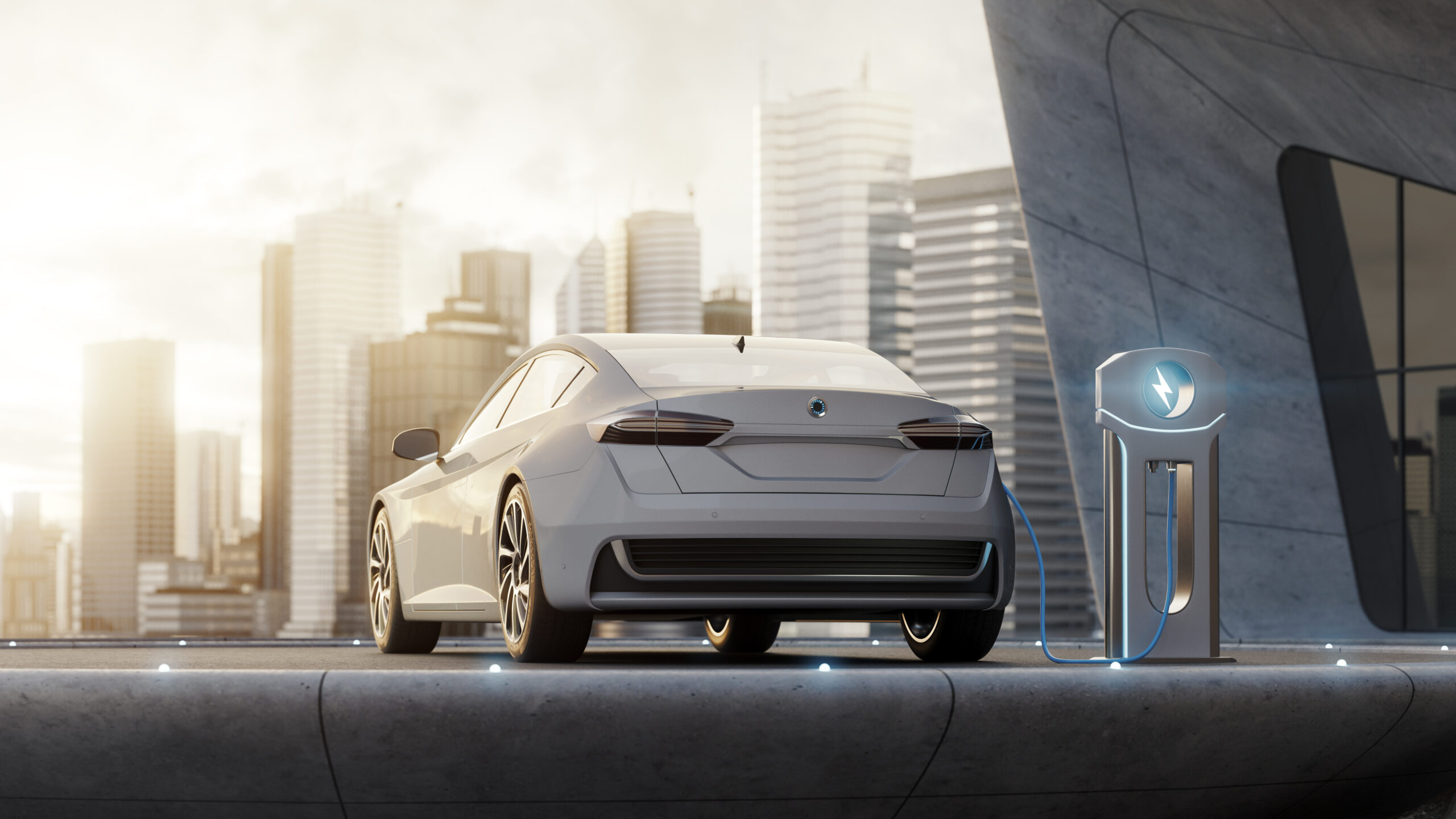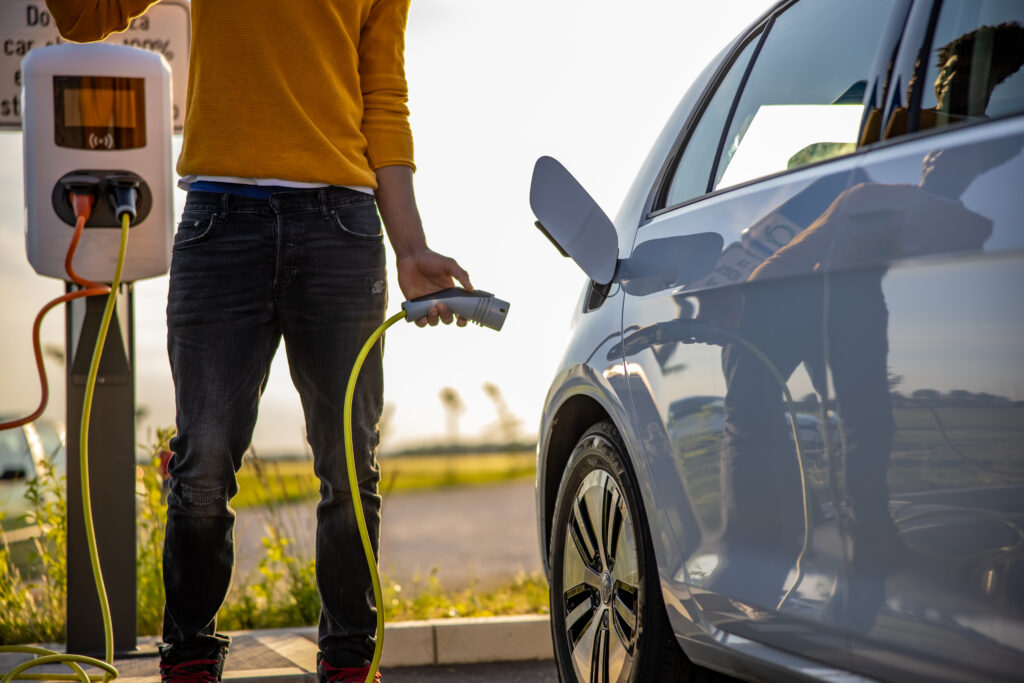
Electric vehicles (EVs), plug-in hybrid electric vehicles (PHEVs), and other clean-energy vehicles continue to gain popularity, especially as gas prices soar. Is it time for you to make the switch?
If you’re new to the EV market, you no doubt have a lot of questions — topics like EV battery range, maintenance costs, and affordability among them. But have you given thought to the tax implications of purchasing an electric vehicle?
To help you understand how buying an EV might affect your taxes and your wallet, we’ve put together a comprehensive guide designed to help you decide if you (and your budget) are ready to go electric.
We’ll start with the most exciting part: tax credits.
On Aug. 16, 2022, Congress passed the Inflation Reduction Act (IRA), a bill that included large investments in clean energy — including big changes to tax incentives for EV purchases.
To qualify for the electric vehicle tax credit in tax year 2022, you must meet different requirements set by the IRS depending on when you purchased and started driving the EV.
Refer to our table below to compare the federal EV tax credit rules before and after the Inflation Reduction Act went into effect.
- Credit Amount: $2,500-$7,500 depending on size of vehicle and battery capacity
- Refundable: No – credit is limited to your tax liability
- How to Claim: Claim with Form 8396 on federal income tax return
- Manufacturer and Assembly Restrictions: Gradual phaseout of tax credit after manufacturer vehicles sales reach 200,000
- Vehicle Restrictions:
- New vehicles only (EVs and PHEVs)
- Must be less than 14,000 lbs.
- Must use an external plug-in charging source
- Battery capacity of at least 4 kilowatt hours (kWh)
- Gross Income Restrictions for Taxpayers:
- New Vehicles: None
- Preowned Vehicles: None
- Price Restrictions for Vehicles: None
- Credit Amount:
- New Vehicles: up to $7,500 for new vehicles depending on where battery components and minerals are sourced
- Used Vehicles: up to $4,000 or 30% of the vehicle price, whichever is less (only applies to vehicles put into service after Dec. 31, 2023)
- Refundable: No – credit is limited to your tax liability
- How to Claim:
- Claim with Form 8396 on federal income tax return
- Option to take credit as discount upfront when purchasing vehicle (beginning in 2024)
- Manufacturer and Assembly Restrictions: Final assembly of the vehicle must be completed in North America
- Vehicle Restrictions:
- New and used “clean vehicles” (including EVs, PHEVs, FCEVs, etc.)
- No more restrictions on plug-in charging source of battery capacity
- A certain percentage of battery components and minerals must come from US free trade partners (gradual phase-in)
- Gross Income Restrictions for Taxpayers:
- Single Filers: $75,000 or less
- Head-of-household: $112,500 or less
- Join Filers: $150,000 or less
- Price Restrictions for Vehicles:
- New electric pickup trucks, SUVs, and vans: MSRP of $80,000 or less
- New electric cars: MSRP of $55,000 or less
- Used EVs: $25,000 or less
According to the IRS, if you signed a written binding contract to purchase a qualifying EV before Aug. 16, 2022 (when the Inflation Reduction Act went into effect), but don’t receive the vehicle until on or after Aug. 16, you can claim the federal EV tax credit based on the pre-Inflation Reduction Act rules listed in the table above.
Example
Nathan signs a written binding contract in May 2022 with his local Toyota dealer to purchase a new 2022 RAV4 Prime Plug-in Hybrid. He is not expected to receive the vehicle until October 2022. While this vehicle does not meet the final assembly requirements of the revamped EV tax credit, Nathan can still claim the $7,500 credit the vehicle would have qualified for before the new law passed because he signed a contract before Aug. 16.
If you purchase a vehicle after Aug. 16, 2022, and you take possession of it before Jan. 1, 2023, the vehicle’s final assembly must have been completed in North America. Other than that, the same pre-Inflation Reduction Act rules still apply, including the 200,000-manufacturer sales cap.
Example
Patricia purchases a 2022 Nissan Leaf in September 2022. She receives the vehicle in late November 2022. The automaker confirms the vehicle’s final assembly was completed in North America, and it meets all the other pre-IRA tax credit requirements, so she can claim the full $7,500 tax credit on her 2022 federal income tax return.
If you purchase and take possession of a qualifying vehicle after Dec. 31, 2022, you must abide by the new tax credit rules put in place with the Inflation Reduction Act.
As of yet, there is little clear guidance on what constitutes “final assembly” in this instance. However, the U.S. Department of Energy put together a helpful list of new 2022 and 2023 EV models that may meet the final assembly requirement.
Unfortunately, some identical EV models are built in multiple locations, so compiling a list of vehicles guaranteed to qualify for the tax credit is challenging. For example, Nissan has manufacturing locations in Mexico and Japan, meaning your local Nissan dealer might be selling Nissan Leaf vehicles assembled in Asia and North America. Those assembled in Mexico would qualify for the revamped tax credit, while those assembled in Japan would not.
Always check with the manufacturer for accurate information about where your prospective vehicle was assembled. If you have the vehicle identification number (VIN), you can also use the National Highway Traffic Safety Administration’s VIN Decoder to identify the vehicle’s plant of assembly.
Some states offer additional incentives for purchasing (or sometimes leasing) an EV. Each state has different eligibility requirements, many of which differ from the federal EV tax credit requirements. Meaning that even if you don’t qualify for the federal tax credit, you may still be able to claim a tax rebate from your state. So don’t forget to check!
You can find each state’s unique laws and tax incentives on the U. S. Department of Energy website.
Here’s an example: Oregon residents can claim the state’s Clean Vehicle Rebate of up to $2,500 for the purchase or lease of a new EV, PHEV, fuel cell electric vehicle (FCEV), or electric motorcycle. The final credit amount depends on the vehicle type, battery capacity, and MSRP.
Oregon’s Charge Ahead Rebate Program also offers low- to medium-income households a second rebate of up to $5,000 for the purchase or lease of a new or used EV, as long as you meet the income requirements set by the state. Because of these rebates, it’s possible Oregonians could claim a state tax credit of up to $7,500.
If you’re still on the fence about purchasing an electric vehicle, here are some more tax considerations and financial implications to keep in mind.
Currently, clean-energy vehicles tend to cost quite a bit more than their traditional counterparts. Purchasing an EV will likely land you with a higher monthly payment, and you’ll pay more in sales tax if you live in a state that charges sales tax.
However, federal and state tax credits help offset the extra upfront costs of purchasing an EV. And remember, you’ll also be saving money that you would otherwise spend on gas when driving a conventional vehicle.
You may also pay higher municipal excise taxes when driving an EV. Since these vehicles run on electricity, you would be subject to any local municipal taxes on electricity when charging your vehicle’s battery. While this might not seem like a big deal, receiving an unexpectedly high electric bill is never fun. So it’s a good thing to keep in mind!
It’s also important to note that some states have imposed additional registration fees on clean energy vehicles.
These states justify the extra annual fee by claiming they get a large portion of public funding for highways and bridges through fuel tax revenue (the tax you pay when buying gasoline). Since EV drivers do not pay taxes on gasoline, some states have imposed special registration fees to offset this lost revenue.
As of 2022, 30 states charge extra annual fees for EVs, and 14 also charge extra for PHEVs. The exact amount depends on your state and vehicle type, but fees currently range from an additional $50-$200 per year.
It’s unclear how long states will continue to impose these fees as more consumers decide to go electric. For now, at least, it’s something to consider when deciding if an EV will fit within your budget.
Ultimately, it’s up to you to decide whether purchasing an EV, plug-in hybrid, or another alternative fuel vehicle is the right decision. Consider the financial implications carefully to decide whether an all-electric car fits within your budget and lifestyle.
If you decide it’s time to make the switch, just make sure you familiarize yourself with all the tax incentives available to you at both the federal and state level — you don’t want to leave any money on the table!
AAA’s Recommendation: Whether you own an electric vehicle or a gas-powered car is up to you – and you should consider lots of factors in making that choice. No matter what type of vehicle you’re choosing, we recommend visiting a dealership, test driving one, and asking as many questions as possible to make an informed decision.





















